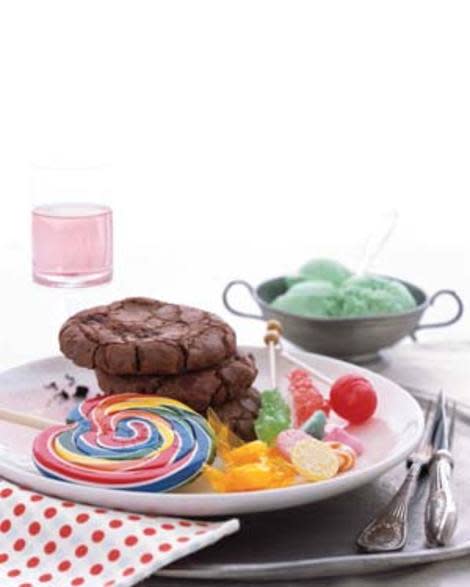How to Break Bad Eating Habits
Bad habits are made to be broken. Learn easy tricks to help you eat better every day.
By Sally Wadyka
If You're a Serious Snacker
The fallout: You may end up overeating. A healthy snack or two between meals is fine. Snacks can keep blood sugar steady as well as allow you to rack up more servings of fruits and vegetables. "It's when you snack in place of eating real meals that you're more likely to lose track of how much you're eating," says Tara Gidus, R.D., an Orlando, Florida-based spokesperson for the American Dietetic Association. Of course, what you eat matters, too. Typical snack foods (chips, cookies, pretzels) aren't that nutritious or satisfying, so it's easy to overdo them.
The fix: To keep your energy up and hunger at bay, allow yourself two snacks a day of 100 to 300 calories each. "Rather than a cookie or a candy bar, opt for something that feels like real food―half of a small sandwich, whole-grain crackers with cheese, a handful of nuts, baby carrots with hummus, or yogurt sprinkled with cereal," says Gidus.
See More: Low-Calorie Snacks for Every Craving
If You're a Mindless Muncher
The fallout: Television makes people particularly prone to spaced-out eating. In fact, "folks who eat while watching the tube take in 20 to 60 percent more than if they are focused on their food," according to Brian Wansink, a professor of marketing at Cornell University and the author of Mindless Eating (Bantam, $11, amazon.com).
The fix: Figure out which situations trigger mindless eating for you, then consciously make an effort to eat only when you're fully engaged. If you need a few snacks, set limits on what you'll eat. Dole out a single serving before you sit down on the couch, or delay your snack until you can pay attention. Minimize damage by dipping into low-cal foods, such as cut vegetables, air-popped popcorn, rice crackers, and whole-grain cereal.
See More: 13 Productive Things to Do While Watching TV
If You Eat Your Way Out of a Bad Mood
The fallout: It may be soothing in the moment, but feeding your fears and frustrations, instead of confronting them, can lead to a cycle of more bad moods as well as steady weight gain. Many people turn to carbohydrates, in particular, which produce tryptophan, a type of amino acid that is used by the brain to manufacture serotonin. "When the brain makes more serotonin, your mood improves, but only temporarily," says Judith Wurtman, Ph.D., a coauthor of The Serotonin Power Diet (Rodale Books, $25, amazon.com).
The fix: Stop to think about what's bothering you before reflexively open the cupboard. Then try a nonfood mood booster, such as taking a walk, seeing a movie, or calling a friend. "If nothing but carbs will do, get the serotonin boost without triggering a binge," says Gidus. "Opt for a whole-grain treat so at least you get more fiber and less sugar."
See More: 25 Easy, Instant Energy Boosters
If You Eat Carefully All Week, Then Blow It on the Weekend
The fallout: It is possible to undo five days of good with regular weekend free-for-alls. In 2004, data from the National Weight Control Registry revealed that people who were consistent in their weekly eating habits, even if they weren't perfect, were 1.5 times more likely to stay within five pounds of their weight over one year than were those who were vigilant on weekdays only.
See More: The Secrets of Thin People
The fix: Since much socializing around food takes place on weekends, it pays to strategize. "Have a mini meal before you go out to help you have more self-control, and offer to be the designated driver to limit alcohol intake," says Gidus. (Alcohol has more calories than you probably think.) And don't restrict yourself so severely Monday through Friday that the weekend feels like your only time for indulgence.
See More: How to Break Bad Eating Habits
Don't Miss:
How to Break 11 Bad Habits
20 Little Ways to Drop Pounds
Make Nutritious Snacking Choices on the Go

